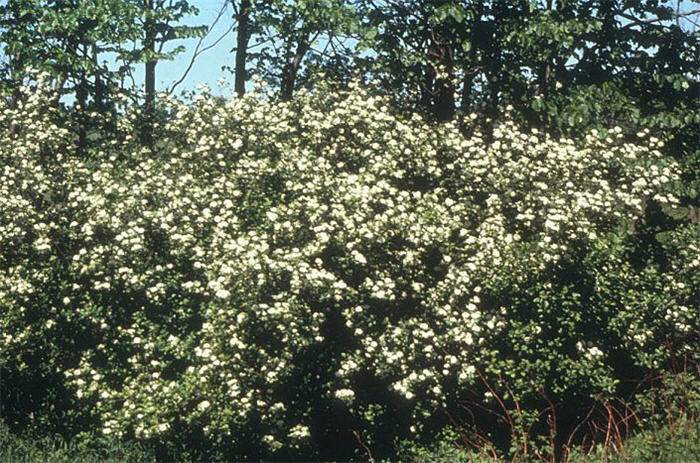| Botanical Name: Crataegus crusgalli x inermus | |
| Common Name: Thornless Cockspur Hawthorn |

-
Anatomy
-
Culture
-
Design
Plant Type
Tree
Height Range
12-25'
Flower Color
White
Flower Season
Spring
Leaf Color
Dark Green
Bark Color
n/a
Fruit Color
Red
Fruit Season
Winter, Fall
Sun
Full, Half
Water
Medium
Growth Rate
Moderate
Soil Type
Sandy, Clay, Loam, Rocky, Unparticular
Soil Condition
Average, Rich, Poor, Well-drained, Dry
Soil pH
Acid, Neutral, Basic
Adverse Factors
n/a
Design Styles
English Cottage, Formal, Meadow, Mediterranean, Ranch, Woodland
Accenting Features
Fall Color, Showy Flowers, Silhouette, Specimen
Seasonal Interest
Winter, Spring, Summer, Fall
Location Uses
Background, Perennial Border, Shrub Border, Foundation, Parking Strip, Walls / Fences
Special Uses
Screen, Mass Planting, Small Spaces
Attracts Wildlife
Birds
Information by: Stephanie Duer
Photographer:
Photographer:
-
Description
-
Notes
Thornless Cockspur Hawthorn is a rounded, small tree, ususally growing 15 to 18 feet all nearly as wide. Leaves are oval, slightly toothed, and deep green, turning orange to purple-red in the fall. White flowers bloom in May; and are followed by small, rounded fruits that ripen late summer into fall. Fruits are technically edible, but are best left for the birds. Bark is exfoliating; coupled with the fruit, it makes for a pretty winter picture. Its thornless habit makes this hawthorn well suited for patios, walkways, and entries. Nice in groups.
Hawthorns grow in full sun to part shade, in any well drained soil. They tolerate clay, loamy, or sandy soils; pH adaptive. Very twiggy; prune in late winter to early spring when structure is most apparent (see Guides); shearing makes them more twiggy and tangled.